Think tank webinar calls for global cooperation on combating COVID-19
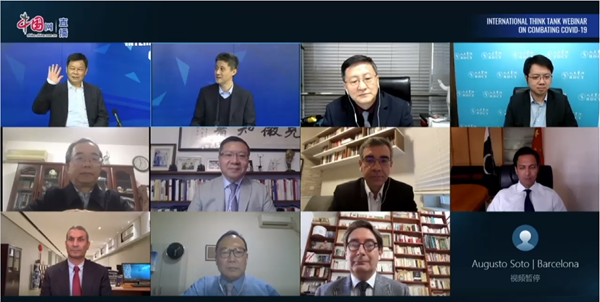
A think tank webinar held Monday called for closer global cooperation on combating COVID-19, as the pandemic rages around the world, costing valuable human lives and posing unprecedented challenges to the international community.
The "Contemporary China and World: International Think Tank Webinar on Combating COVID-19" brought together experts and researchers from six countries on four continents to discuss COVID-19, its implications, and joint international responses to the crisis.
The two-hour video conference sponsored by the China International Publishing Group (CIPG) was centered around the theme "Pooling Wisdom and Sharing Experience: Joint Efforts to Fight COVID-19."
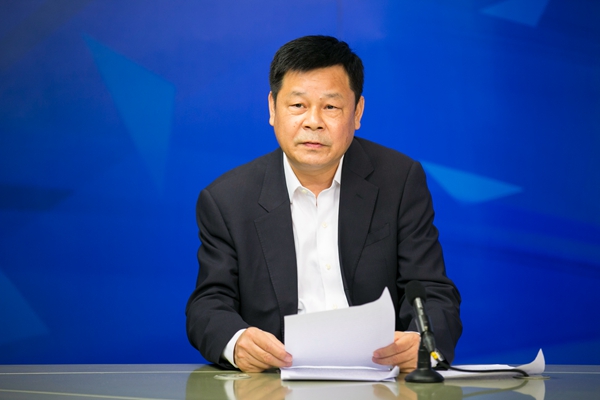
Du Zhanyuan, president of the CIPG, delivered the opening remarks. He said the webinar shows the readiness and willingness of Chinese and foreign think tank experts to strengthen dialogue and cooperation as the epidemic spreads around the world.
Noting that COVID-19 has become the most pressing challenge facing the international community, Du urged think tanks to call on all countries to put aside their differences, build consensus, strengthen cooperation and help one another.
He said think tanks need to uphold the vision of building a community with a shared future for mankind, oppose the stigmatization and politicization of the disease, and refrain from using the virus as a weapon for political maneuvering.
Du emphasized that solidarity and cooperation are the most powerful weapons in defeating the virus. "In the face of a common challenge, what we need is wisdom, not political calculation; what we need is to help each other, not to take advantage of others' difficulties; and what we need is win-win cooperation, not lose-lose confrontation," he added.
Gao Anming, vice president and editor-in-chief of the CIPG, presided over the webinar. He said major infectious diseases are the common enemy of mankind and know no national borders.
"No one is an outsider. No country can stay out of it in a battle against the viral onslaught. Fighting against the virus takes joint efforts of people from across the world, regardless of their nationality, language, skin color, or religious belief," Gao said.
The 10 guest speakers also stressed the importance of unity, solidarity and consensus in addressing the common challenge facing all countries.
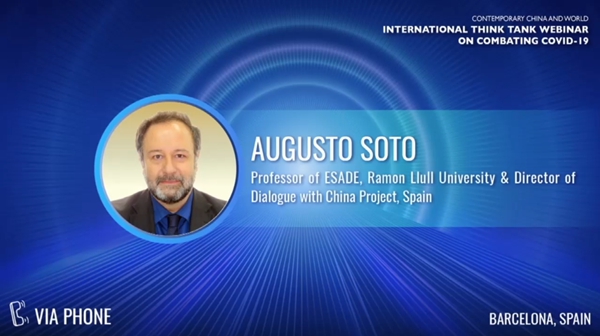
Augusto Soto, professor at ESADE of Ramon Llull University of Spain, said, "This crisis is the best example that we share common challenges and a common destiny." He also pointed out that "unity in action has not yet been reached."
"After this crisis we can end up in a frightful economic-social crisis or in a mild economic shock leading, in any case, towards a new culture of global collaboration," Professor Soto explained. "If we do not end up understanding that we share a future which is common, as a species, we will not survive long on this planet."
Mustafa Sayed, executive director of the Pakistan-China Institute, said, "When we talk about the coronavirus, we should talk about it as one human race."
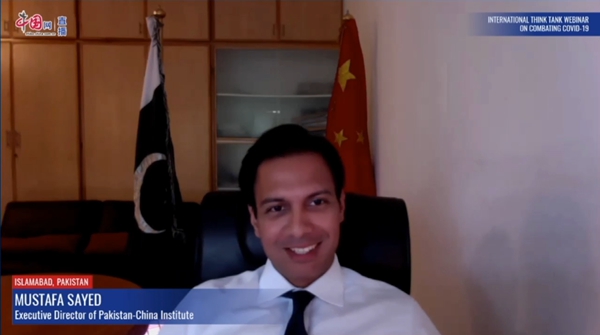
"This is the time when we should put political interests aside and come together. Only if we come together, will we be able to win this war against the coronavirus," he added.
Wang Xiaohui, editor-in-chief of China Internet Information Center, shed light on the role of the media during global public crises such as COVID-19. "Media organizations should avoid pointing fingers at each other, which is both useless and meaningless," he said.
Wang stressed that the media should take the high road and put the greater good of mankind first. "Under such circumstances, media organizations should pay more attention to distributing information, sharing experiences, promoting cooperation, and encouraging governments and people to render help to other countries," he said.
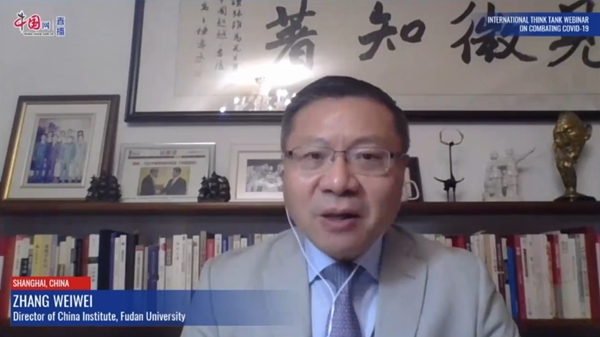
Zhang Weiwei, director of the China Institute at Fudan University, analyzed some western media reports ridiculing China's response to COVID-19 and called for people to do away with their ideological bias and cognitive bias towards China.
"The Chinese experience is the common assets for mankind. I think the western media has made mistakes which really have produced tremendous costs for western societies. I hope we can address these kinds of mistakes in the coming months," Zhang said.
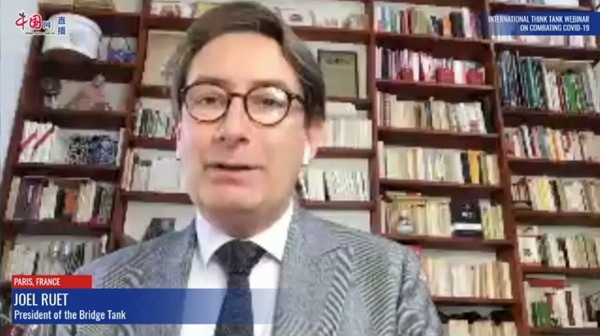
Wang Wen, executive dean of the Chongyang Institute for Financial Studies at Renmin University of China, said the economic disruption caused by the pandemic may be more serious than that of the 2008 financial crisis, warning countries around the world to stand united in preventing not only the virus but also economic depression.
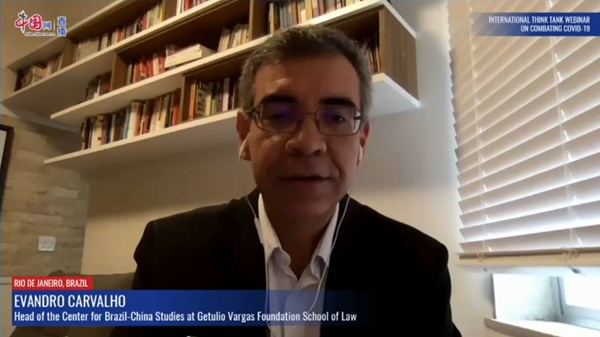
The webinar also featured insights from Xu Shunqing, professor and vice dean of the School of Public Health at Huazhong University of Science and Technology; Joel Ruet, president of the Bridge Tank of France; Li Yong, deputy chair of the Expert Committee of China Association of International Trade; Evandro Carvalho, head of the Center for Brazil-China Studies at the Getulio Vargas Foundation School of Law in Brazil; and Hussein Ismail, researcher at the Egypt State Information Service.
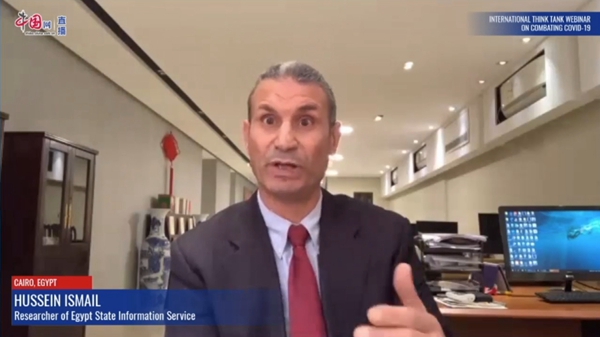
The event was jointly organized by the Academy of Contemporary China and World Studies, China.org.cn, China Today and Bosheng International Cultural Communication Co., Ltd.








Go to Forum >>0 Comments